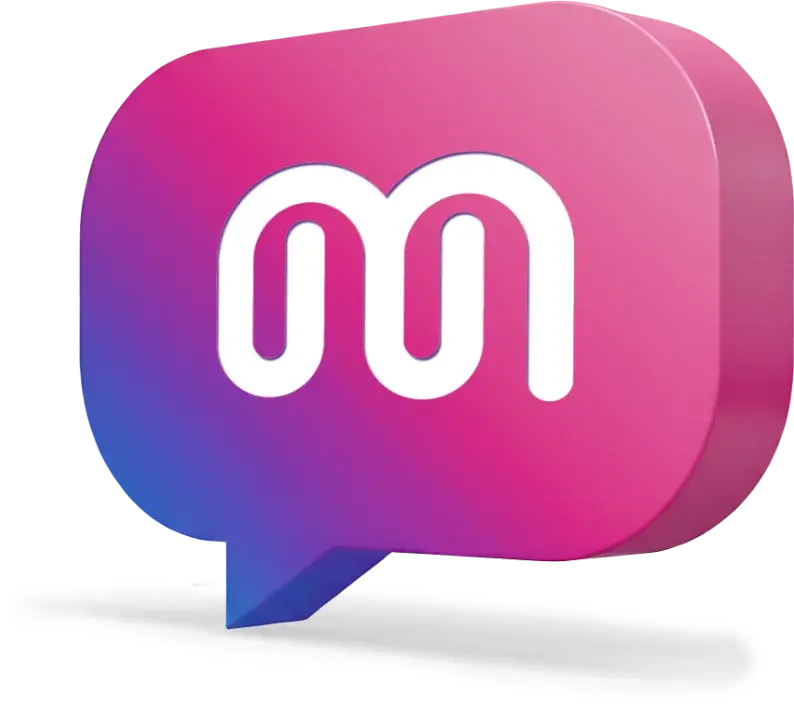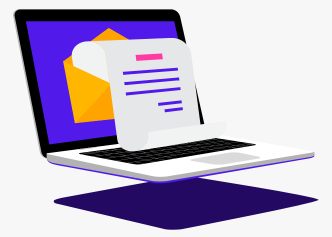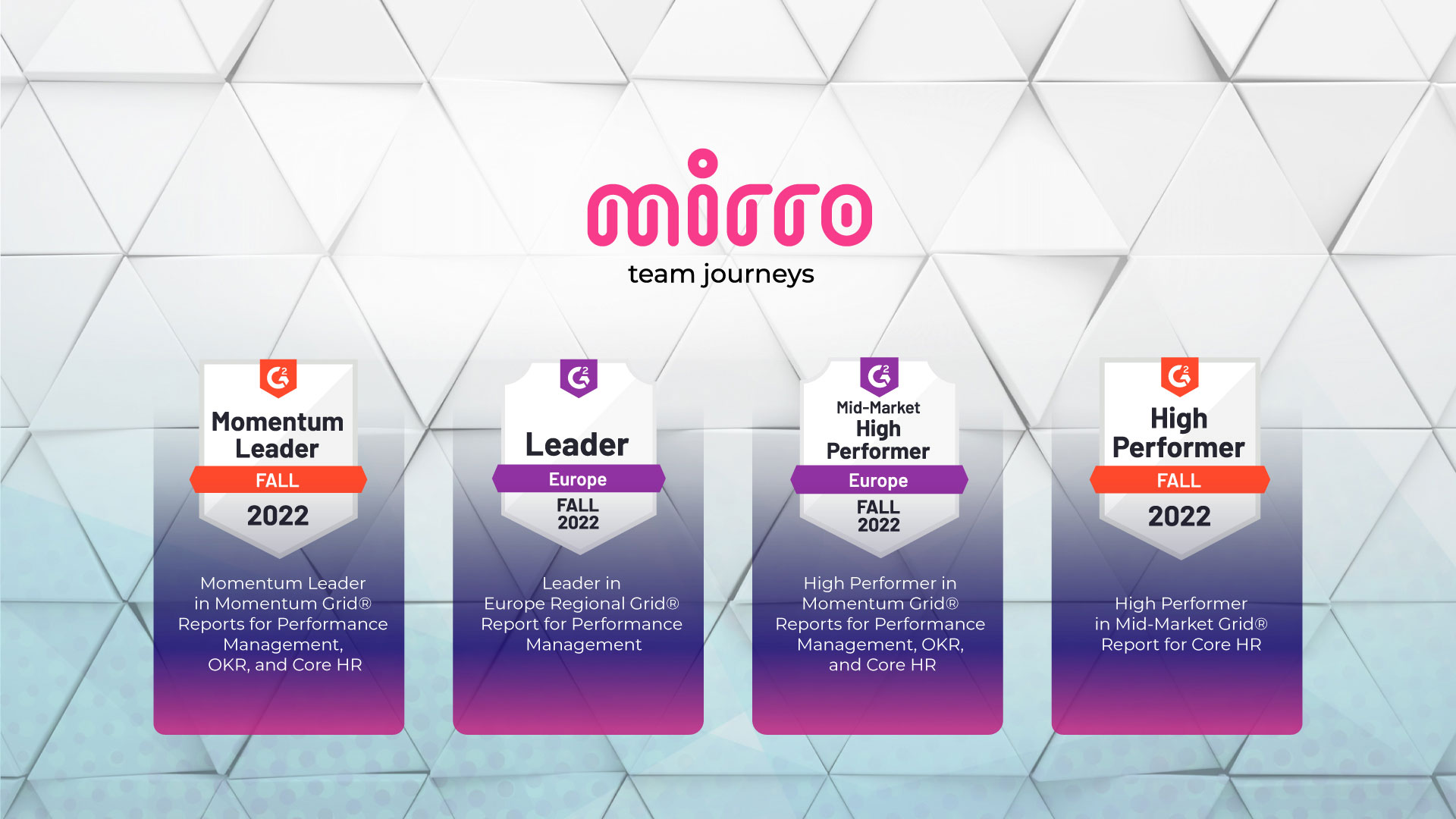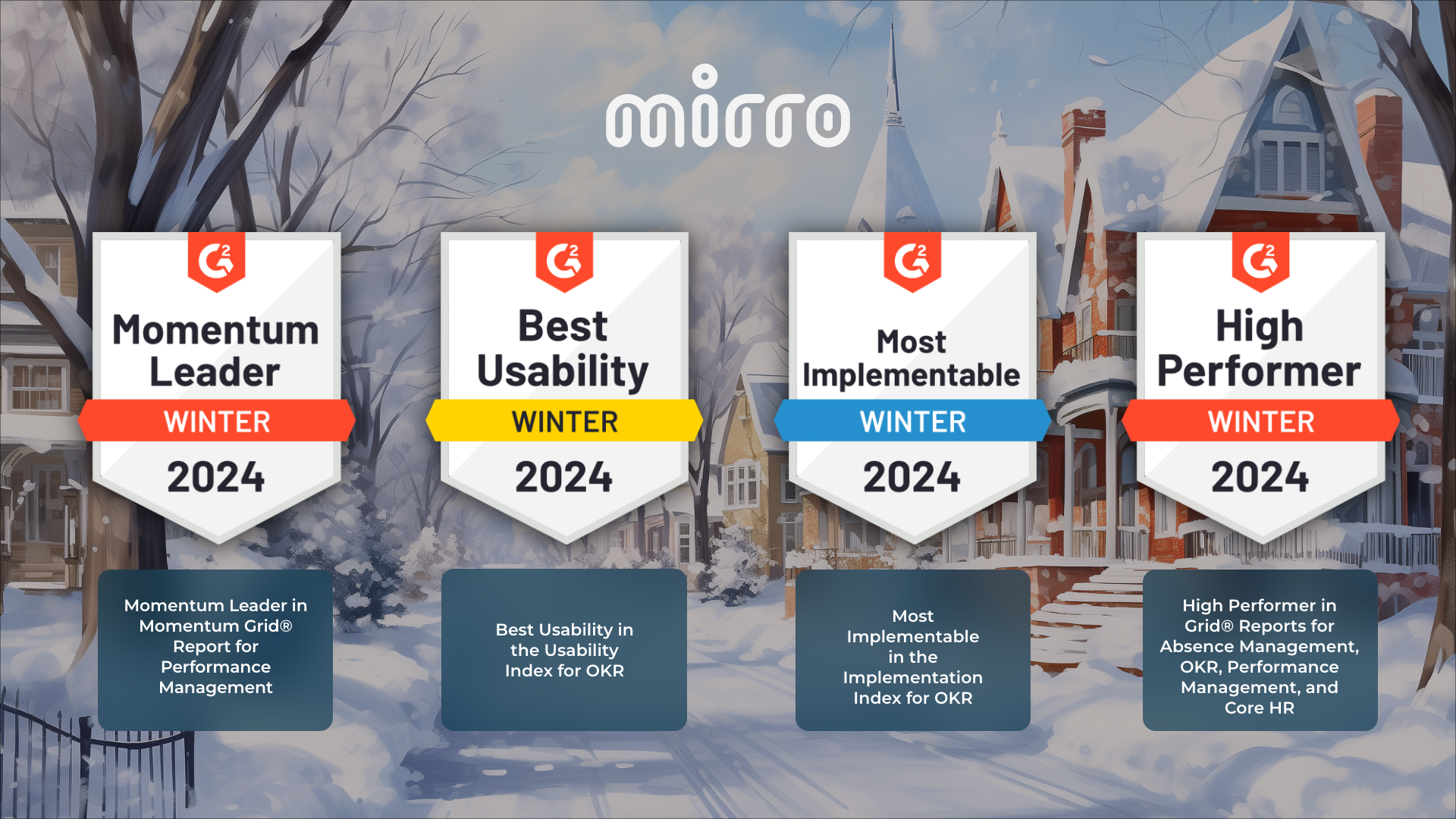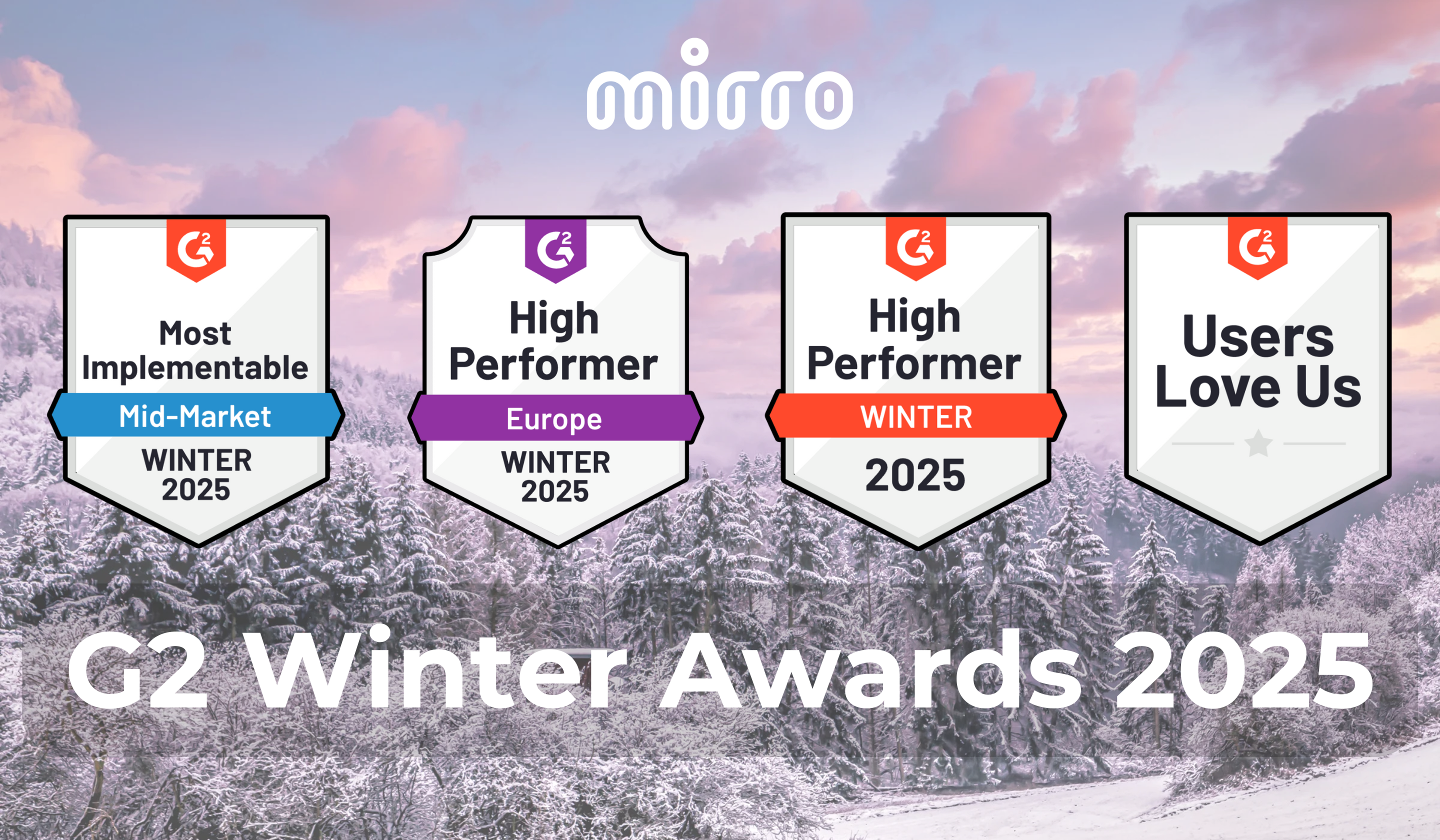SECTION
AI in HR: 5 Findings From the Exclusive Mirro Event
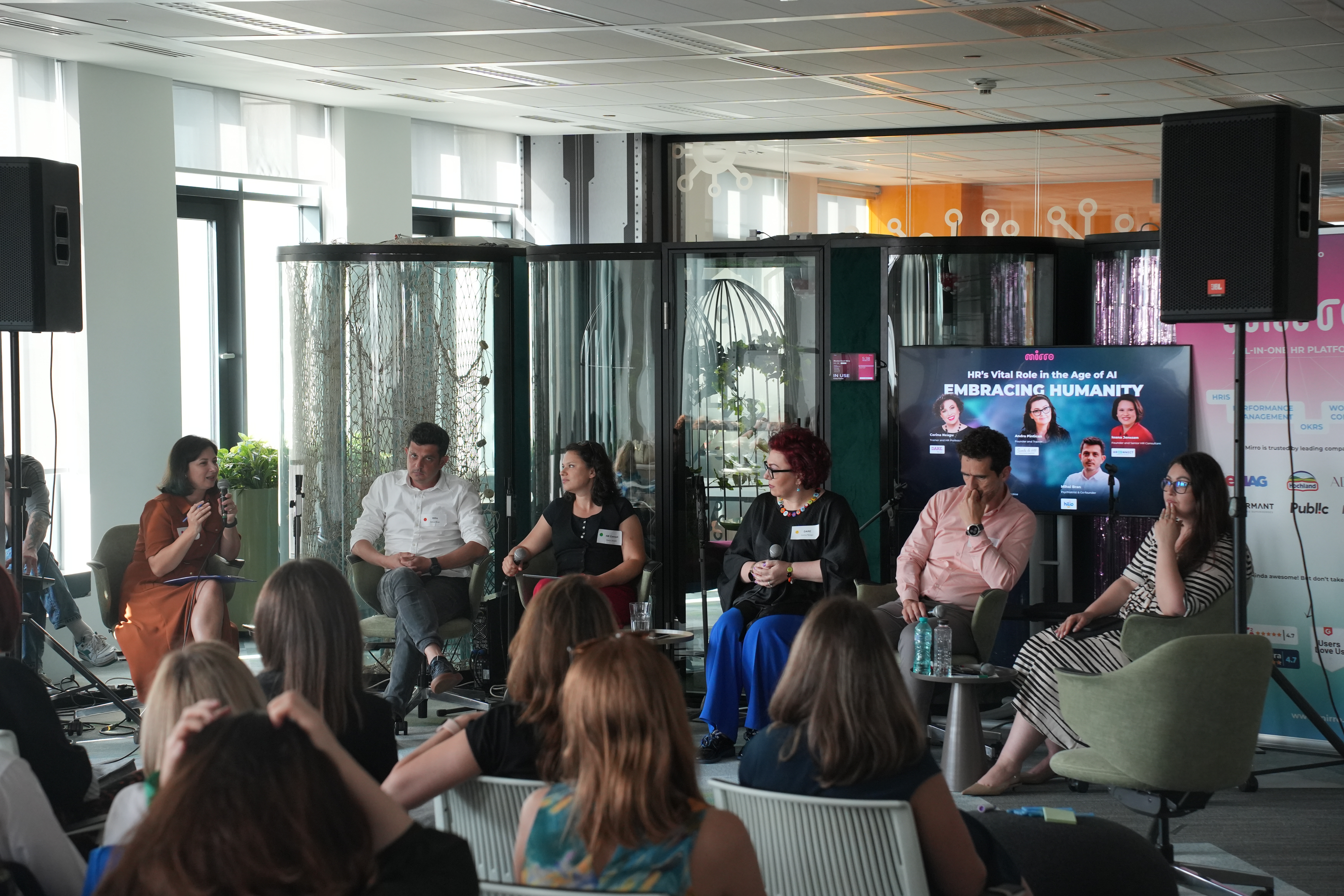
Listen to this article:
On June 4, 2024, we convened at Mirro's headquarters with five HR experts for a roundtable event to discuss HR's vital role in the age of artificial intelligence (AI) and go beyond the hype to explore its true business potential.
At the heart of the discussions, we explored how AI can revolutionize HR while maintaining a human-centric approach. Participants and panelists opened up about their experiences and debated the challenges, such as job displacement, security issues, and the importance of maintaining empathy and ethical standards.
Continue reading to learn about the real-life solutions our HR panelists offer to existing and future challenges in the digital area.
Event overview: goals and outcomes
The exclusive Mirro event gathered HR thought leaders to discuss how HR can leverage AI while keeping people at the heart of everything. The small group discussions were intended to determine the pros and cons of AI and HR.
Each roundtable session was moderated by one of our HR experts. We discussed the impact of AI in an organizational context related to HR roles and functions (recruitment and selection, performance management, feedback, communication, learning & development).
This interactive session, held in a 30-minute format, was advantageous because it facilitated the rapid exchange of ideas, experiences, and practical solutions. At the end of the roundtables, we gathered for a panel discussion, during which we shared the key insights from each session with the whole group.
Corina Neagu: strategic HR and thoughtful AI integration

Corina Neagu is a trainer and HR professor at DARE. She has over 20 years of experience in HR, a passion for people, and a career based on integrity, honesty, courage, and ambition. During the roundtable session, she moderated and emphasized the importance of authenticity and having a thoughtful approach to AI integration.
Key highlights:
- The main disadvantage of AI could be the lack of authenticity that comes with it. Many organizations use AI merely as a tool without having a genuine understanding or intention.
- We must use AI thoughtfully: "Not just anyhow, not just anytime, not just anywhere." HR leaders must be strategic partners who understand real business needs before jumping on the AI bandwagon.
- Work smarter, not harder: AI isn't about reducing work but making it more efficient.
💡 The conclusion? Before adopting AI, we need to undergo organizational transformation. We inherit specific patterns that need transformation, such as working too much because we want to compensate for something we're missing or not knowing how to set boundaries. It's not our fault things are this way, but it's our responsibility to change it.
Andra Pintican: redefining HR with a focus on human dignity

Andra Pintican is the founder and trainer at Școala de HR. She is a career counselor, HR trainer, and consultant who aspires to redefine HR, recognizing each individual’s unique value.
Andra started her session by sharing an eye-opening experience. She told us how she asked ChatGPT about the biggest drawbacks of AI—misinformation, security breaches, and dependency on technology, which can lead to a loss of critical thinking and creativity.
Key highlights:
- The whole discussion about AI in HR centers around the human condition. HR's role is to elevate the human condition in the workplace, and AI should support that.
- Adopting AI in the workplace should be done ethically and with integrity. Despite some people's narcissistic tendencies, what we produce should serve the greater good.
- Consider generational and gender layers in HR practices, as each group reacts differently to stress. HR professionals must navigate these complexities with empathy and understanding, leveraging AI to foster meaningful connections and address individual needs effectively.
💡 The conclusion? The HR mission is to preserve human dignity and help people grow to their utmost potential. HR becomes a curator of needs—social, community, business, and team—zooming in and out to get a unique perspective. Most importantly, HR must confidently present these insights to business leaders.
Magor Csibi: caring leadership and the importance of clarity

Magor Csibi is the Head of Leadership and Organizational Culture Practice at Trend Consult Group. He is the author, together with Radu Predescu, of the book Battles that Matter, which compares military and civilian leadership.
Key highlights:
- AI can improve efficiency but also reveal a lack of genuine care in many companies. When everything is focused on efficiency and KPIs, AI might reinforce this, neglecting human connection and authenticity.
- Human connection: the only way to counterbalance this is through genuine human connection.
- HR in decision-making: HR must be involved in business decisions as human processes are fundamental to business success.
💡 The conclusion? Caring for your people and ensuring they feel rested, seen, and valued is essential. In return, they will excel. HR should be a key player in decision-making and understanding business needs and people's hidden potential. Remember, digitalization without clarity is just chaos.
Ioana Jenssen: adapting HR tools for meaning and belonging

Ioana Jenssen is the founder and senior HR consultant at HR Connect. With over 15 years of HR expertise, she is fueled by passion and enthusiasm and is dedicated to nurturing a company’s most valuable asset: its people.
Key highlights:
- AI has many advantages, including eliminating human errors, automating processes, and bringing speed and efficiency to processes, allowing more time for developing valuable connections.
- The main disadvantage of AI is related to data security. The lack of legislative frameworks around AI can lead to data breaches.
- AI can help define meaning and belonging in the workplace.
💡 The conclusion? The HR mission remains the same: to nurture meaning and belonging. However, the toolbox must change and adapt to current circumstances. HR professionals must stay curious, embrace technology, and maintain a positive outlook.
Mihai Bran: balancing business goals with wellbeing

Mihai Bran is a psychiatrist and co-founder of Hilio. With over 15 years of experience in mental health services, Mihai supports people and organizations in finding balance and building thriving workplace environments.
Key highlights:
- AI can be an excellent instrument for HR but brings risks such as brain laziness and dependency.
- Efficiency and connection: AI can improve efficiency and proximity to core business tasks, potentially freeing time for personal connections, though there's a fear of lost connection.
- Justifying decisions: AI can justify decisions up to a point, but tough human decisions should remain with people. AI should act solely as an arbitrator or moderator.
💡 The conclusion? HR must strike a balance between achieving business goals and prioritizing humanity, helping employees find meaning and balance in their work. While AI will allow HR leaders more time for meaningful connections, we should be aware of the addiction risk it brings.
Could AI be the next big thing in HR?
The path toward AI integration in HR and digital transformation is just unfolding. Modern businesses are discovering new ways to optimize their HR processes and elevate employee experiences. The potential for innovation and growth knows no bounds, and Mirro is dedicated to leading this transformative journey.
In the rapidly evolving landscape of HR technology, staying ahead of new developments and engaging in these conversations is essential. Continuing to explore our content and participating in upcoming events will give you invaluable insights into the latest innovations shaping the HR landscape. We hope to see you at our next event!


